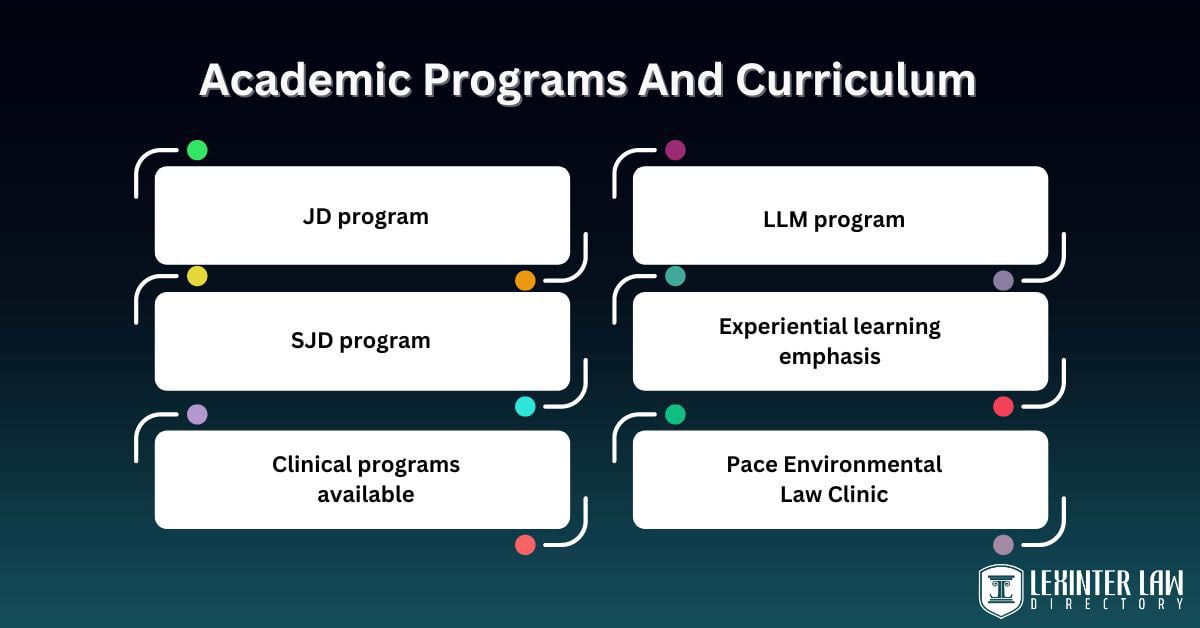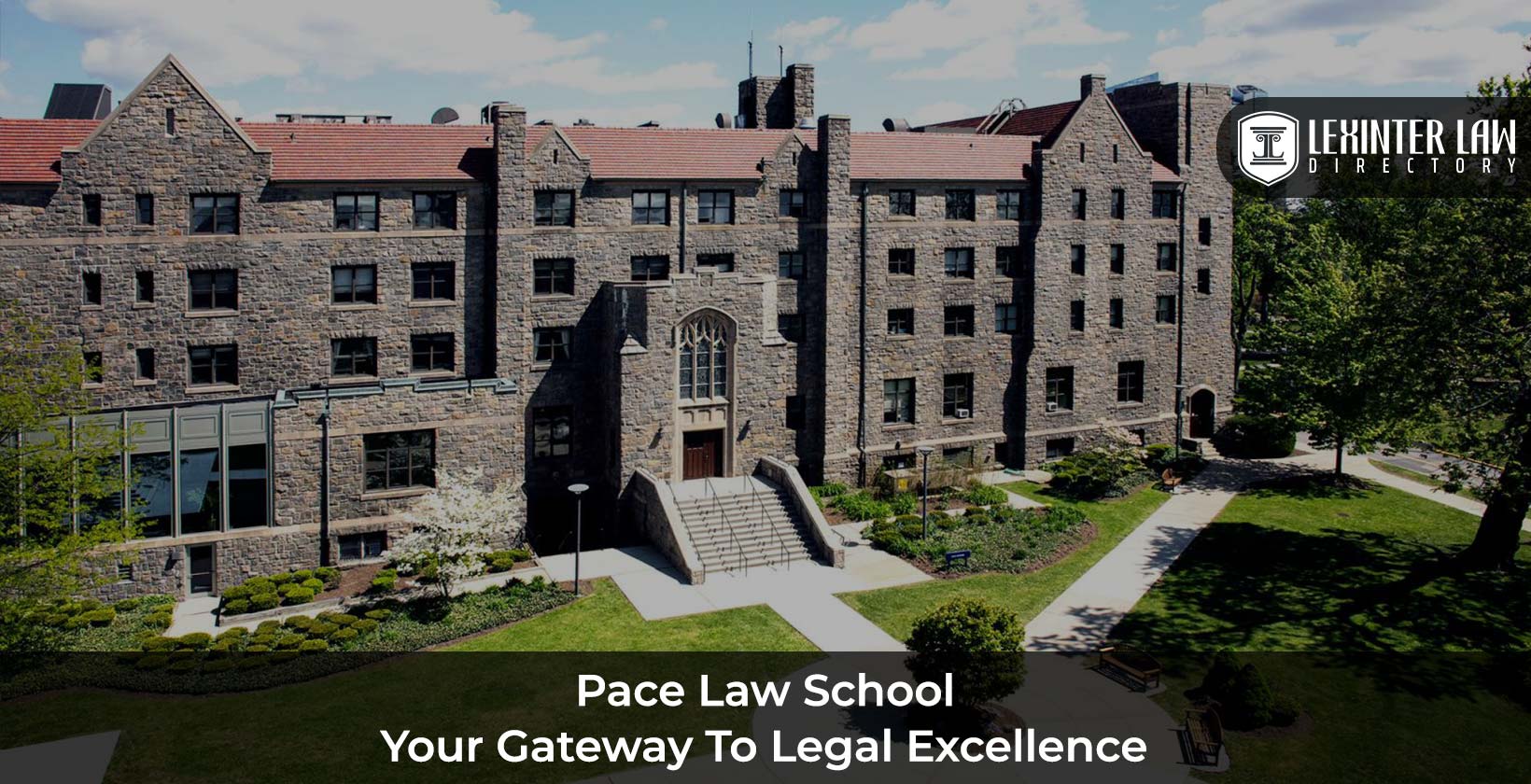Pace Law School: Your Gateway To Legal Excellence
Founded in 1976, Pace Law School has established itself as a premier institution for legal education, combining academic excellence with a bold commitment to justice and public service.
But what truly sets Pace apart? Is it the nationally top-ranked environmental law program, the immersive real-world training in New York’s legal epicenter, or its growing influence in the legal field?
In this article, we uncover it all—Pace Law’s rankings, tuition, admissions, campus life, and more—to show why this law school might be your ideal launchpad to a dynamic legal career.
Table of Contents
Facts To Know About Pace Law School
Pace Law School blends tradition with innovation in one of New York’s most accessible and opportunity-rich legal environments. Here’s what makes it a standout choice for aspiring lawyers.
Location And Campus
Pace Law School is located at 78 North Broadway, White Plains, New York. Situated on a picturesque 13-acre campus, the school offers a serene and conducive environment for learning.
Pace Law School’s campus is equipped with cutting-edge facilities, such as advanced classrooms, moot courtrooms, and a comprehensive law library. The architectural fusion of traditional and contemporary elements results in an invigorating environment that inspires both students and faculty.
Pace Law School’s location in White Plains provides students with unparalleled opportunities for practical learning. The campus is in close proximity to various legal institutions, including federal and state courts, government agencies, and leading law firms. This proximity allows students to engage in internships, externships, and other experiential learning opportunities, enhancing their legal education.
Academic Programs And Curriculum

Pace Law School, a reputed law school with a strong emphasis on innovation and public service, offers a comprehensive legal education tailored to diverse career paths. The three-year Juris Doctor (JD) program provides a solid foundation in legal theory, with options to specialize through various concentrations.
The Master of Laws (LLM) program allows advanced study in fields such as environmental law, intellectual property, and international law—ideal for both U.S. and international graduates. The research-intensive Doctor of Juridical Science (SJD) prepares scholars for academic and policy-making careers.
Known for its commitment to experiential learning, Pace offers highly respected clinics in Environmental Law, Criminal Justice, and Family Law, giving students invaluable real-world legal experience before they even graduate.
Admissions And Acceptance Rate
The admissions process at Pace School Of Law is competitive, considering the school’s reputation and high standards. Prospective students are required to submit their applications, which typically include undergraduate transcripts, LSAT scores, letters of recommendation, and a personal statement detailing their interest in law.
The acceptance rate at Pace Law School varies from year to year. The current Pace Law School acceptance rate is 52.4% with a median LSAT score of 153 and a median GPA of 3.51 for admitted students. This positions Pace among moderately competitive law schools.
Tuition for the academic year is $54,890 for full-time JD students and $41,190 for part-time. The school continues to foster a diverse and inclusive student body, valuing experiences and perspectives that enrich its academic and professional community.
Rankings And Reputation
Pace University’s Elisabeth Haub School of Law has steadily gained recognition as a rising institution in legal education. In the 2025 U.S. News & World Report rankings, it is ranked #141 among Best Law Schools and #42 in Part-Time Law, reflecting its growing reputation for full-time and flexible legal education options.
Pace continues to dominate in Environmental Law, holding the #1 national ranking, and earns strong marks in other specialty areas such as Trial Advocacy (#19) and Dispute Resolution (#18). The school is also ranked in fields like Criminal Law, Health Law, and International Law, showcasing its diverse academic strengths.
These rankings highlight Pace’s emphasis on real-world skills, public interest law, and sustainability, further reinforcing its position as a reputed law school committed to preparing students for meaningful and impactful careers.
Career Prospects And Alumni
Pace Law School prepares graduates for success in diverse legal fields, with 85.1% employed in full-credit positions within ten months of graduation. Students often secure roles in law firms, government, non-profits, and judicial clerkships, thanks to the school’s strong practical training and proximity to New York City.
The alumni network includes judges, firm partners, policymakers, and public interest leaders, reflecting the school’s impact on the legal profession. Pace’s focus on real-world experience and justice-driven education continues to shape legal professionals equipped to lead and serve meaningfully.
Interested to know about The University Of Pittsburgh School Of Law. Read this blog.
FAQs
1. Is Pace Law School Hard To Get Into?
Pace Law School has a competitive admissions process that considers more than just LSAT scores and GPA. While it is not easy to get into, the school values diversity and takes a holistic approach, assessing each applicant’s background, experiences, and potential to contribute meaningfully to the legal profession.
2. What Is Pace Law School’s Ranking?
Pace Law School consistently ranks among the top law schools in the United States, though exact placement varies by ranking system. It is nationally recognized for its academic strength and outstanding commitment to public interest law, earning particular acclaim for programs like environmental and trial advocacy, which enhance its overall reputation.
3. What Rank Is Pace Law School On The LSAT?
Pace Law School isn’t officially ranked by LSAT score, but its median LSAT for 2024–2025 is 153, with a range of 150 to 156. This places it among moderately selective law schools, where LSAT scores are weighed alongside other important admissions factors in a holistic review.
Conclusion
Pace Law School serves as an exemplary institution of legal education, providing a supportive environment for students to cultivate their potential and become outstanding legal professionals. Through its unwavering commitment to public interest and social justice, the school equips graduates with the skills and values necessary to create meaningful change within the legal field.
The exceptional faculty, innovative programs, and practical learning opportunities make Pace Law School a top choice for aspiring legal professionals seeking to excel in their careers and contribute to a just society.

